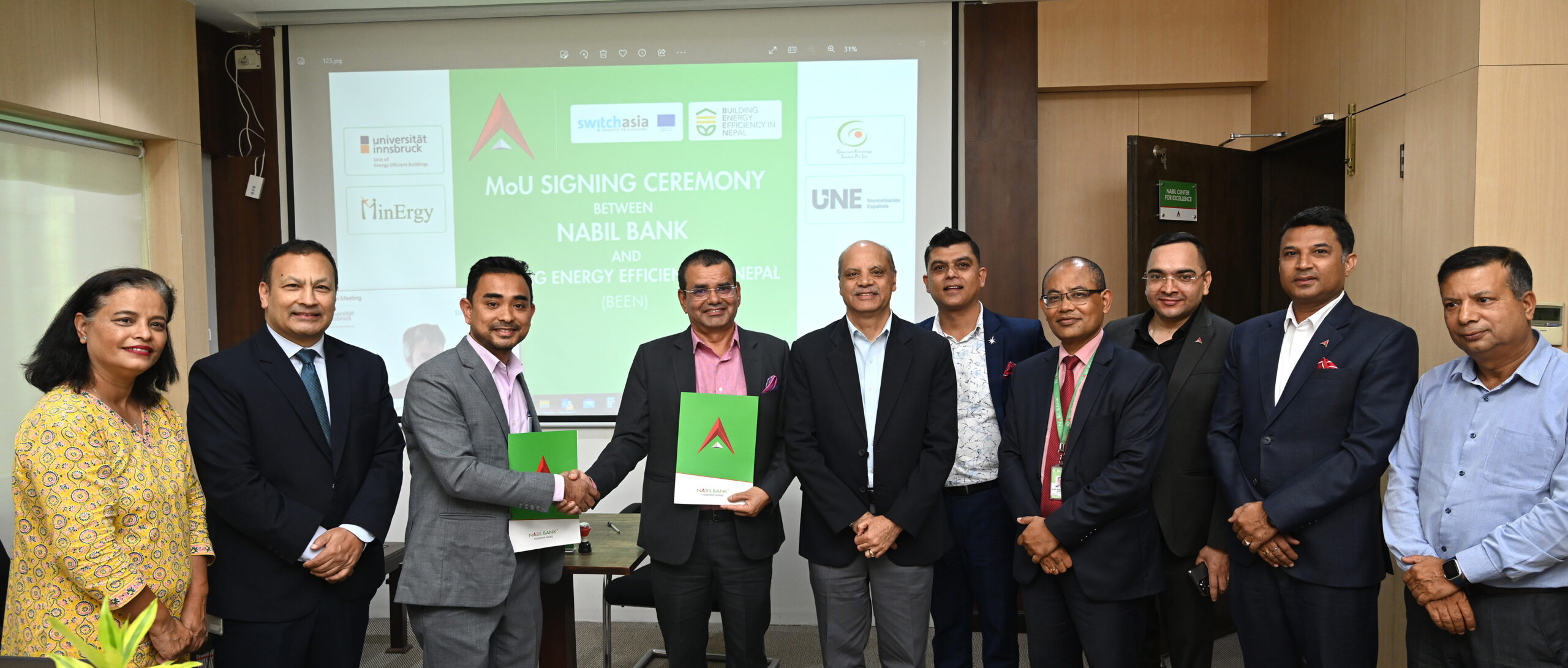
Nabil Bank and the Building Energy Efficiency in Nepal (BEEN-Project), funded by the European Union (EU), have entered into a Memorandum of Understanding (MoU) to collaborate on the advancement of energy-efficient and sustainable housing in Nepal. Through this agreement, both Nabil Bank and the BEEN Project have committed to promoting environmentally conscious and climate-responsive building designs in Nepal.
During the MoU signing ceremony, Gyanendra Prasad Dhungana, the Chief Executive Officer (CEO) of Nabil Bank, and Daniel Neyer, the Project Leader of the BEEN Project, formalized the partnership. The collaboration will focus on several key activities, including the development of innovative financing packages, enhancing technical capabilities to assess financial options, and facilitating access to preferential financial schemes to promote sustainable and energy-efficient buildings.
Addressing the gathering, Upendra Prasad Poudyal, Chairman of Nabil Bank, emphasized the bank’s commitment to addressing climate change and reducing global warming. He highlighted the pivotal role that the banking sector plays in mitigating climate emergencies, emphasizing that energy-efficient and sustainable buildings have positive impacts on both the environment and the community’s economic well-being. Poudyal also noted the substantial investments required to achieve net-zero emissions by 2045.
Nabil Bank has introduced a “Sustainable Housing Loan” program in alignment with its mission to promote sustainable housing. The BEEN Project is assisting in defining the program’s parameters, providing training, and raising awareness about sustainable housing. CEO Dhungana explained that Nabil Bank is actively promoting sustainability through various initiatives, including financing for electric vehicles, sustainable housing loans, and other sustainable practices in its daily operations. He emphasized that while initial investments in sustainable buildings may appear costly, they ultimately result in long-term cost savings, energy conservation, and contribute to a more sustainable planet.
Project Leader Daniel Neyer expressed his satisfaction with the partnership with Nabil Bank in advancing sustainable and climate-responsive building design in Nepal. He reiterated the partnership’s focus on developing innovative financing solutions, enhancing technical expertise for assessing financial options, and facilitating access to favorable financial programs to promote sustainable and energy-efficient buildings. Neyer underscored the importance of this collaboration in furthering the goals of the BEEN Project.
FACEBOOK COMMENTS